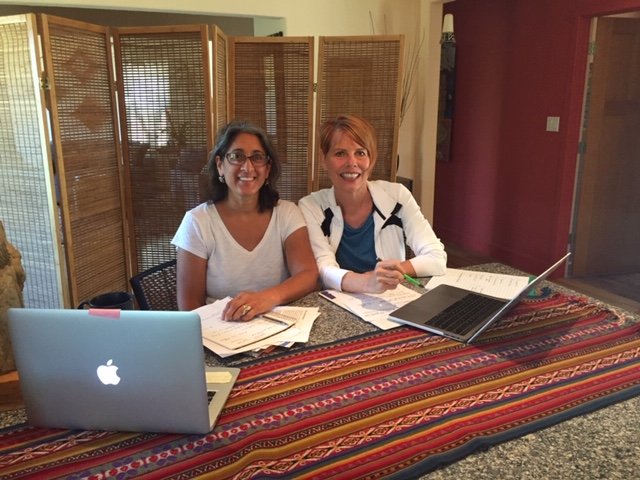Betty and Joy (photo provided)
Written by Betty Lacy, MD, Urmila Joy Sandhu, PA
With less than a year until the 2020 presidential election, I have yet to hear any candidate mention brain health, dementia, or Alzheimer’s disease (AD). Maybe it’s too boring a subject – or maybe it’s too scary? Not only are we in a state of dementia denial nationally, but we seem to be in a state of international ignorance as well. There are 6 million Americans living with Alzheimer’s disease, which will double to 12 million by 2050. Current statistics predict that 50 million people will triple by 2050, making the numbers even more formidable on a global scale.
It’s not just the candidates who should be talking about this, it’s ourselves. But we also remain silent, as if muttering the words dementia or Alzheimer’s disease is a sign that we will contract it.
With no silver bullet from the pharmaceutical industry to ease our fears about this pandemic, presidential candidates, like the rest of the world, seem to look away at the mere mention of dementia. Unfortunately, this prevents us from seeing firsthand this aggressive disease that is changing the world. The changes we continue to deny hide the possibility of halting and preventing AD, one of the saddest of all diseases.
Brain-Body-Health recently held its first potluck lunch. There, a group of us met to share recipes and stories about how we woke up to the importance of brain and body health. For the majority, fear was at the heart of that awakening. Sharing was plentiful and meals were whole foods, low carb and organic. We have formed a small but much-needed community to support each other in new choices we make to optimize the health of our brains and bodies. We acknowledged our past denials, named our fears, and began to create actionable changes in our lives.
Exploring fear is our individual and collective effort to reduce dementia. Fear can act as a catalyst to wake us up, even when we don’t want to. Often, when we explore our fears, they lead us down trajectories we never expected, as did the members of the potluck community.
When we don’t name our fears, they hide behind us, causing us excessive stress and emotional distress, and leaving us in a state of hopeless depression.
The fear of Alzheimer’s disease became reality for me on the day my mother was diagnosed with Alzheimer’s disease in 2015. Even though my grandmother and great-grandmother suffered from Alzheimer’s disease, I closed off those horrific memories and lived in denial and ignorance for many years. Many people I talk to say there’s nothing to be done when there’s nothing that can be done. “I don’t want to know” is a phrase we often hear.
Learning that I carry one copy of the APOE4 gene, the most studied Alzheimer’s disease risk gene, woke me up and changed me. I no longer fear Alzheimer’s disease. I recognize that my family history and genetic predisposition to dementia have opened up entirely new areas of research that have changed the direction of my medical practice and career. I received a wake-up call! Did you receive it?
Dementia can occur in anyone, even if they do not have the APOE4 gene. There are many things we can do to protect our brains. I am now practicing lifestyle behaviors that protect my cognitive function.
Fear still knocks on my door on a regular basis, replacing words or doing tasks I forgot. When that happens, I begin a dialogue with fear. What does fear say? Need to take another action? See a resource, check your lab values, see a doctor, research research, meditate, or get enough sleep? • The truth is that there is not one answer, but many possibilities. By naming our fears, we can move forward and find ways to improve our own personal programs for brain and body health.
We started our Brain-Body-Health practice to provide education and targeted medical interventions to prevent the onset of dementia. The journey begins with your curiosity, drive, and love for a healthy brain.
www.brainbodyhealth.org Dr. Betty Lacy and Urmila Joy Sandhu P.A.


